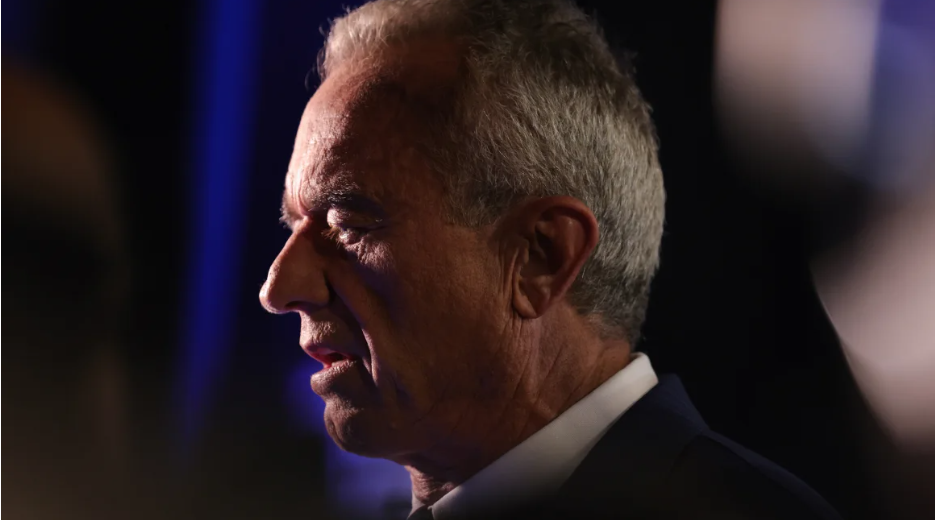
During the first cabinet meeting of the new Trump administration, Health and Human Services Secretary Robert F. Kennedy Jr. provided inaccurate information about the number of deaths in a West Texas measles outbreak and the reasons for hospitalizations.
Kennedy claimed that measles outbreaks are “not unusual.”
Medical experts strongly disagree.
“Classifying it as ‘not unusual’ would be inaccurate,” said Dr. Christina Johns, a pediatric emergency physician at PM Pediatrics in Annapolis, Maryland. “Typically, an outbreak involves only a handful of cases—not the more than 100 people affected in the recent West Texas outbreak.”
Dr. Philip Huang, director of the Dallas County Health and Human Services Department, reinforced this point. “This is not usual,” he said. “Fortunately, it’s not usual, thanks to the effectiveness of the vaccine.”
Dr. Lara Johnson, chief medical officer of Covenant Health Lubbock Service Area, noted that widespread measles outbreaks had become rare in the U.S. due to vaccination efforts. However, that progress has shifted.
“The United States had reached a point where these kinds of outbreaks were nearly nonexistent,” Johnson said at a press conference following the first measles-related death in the U.S. in a decade. “That has changed over the last 20 years. We’re seeing outbreaks more frequently, and that is directly tied to vaccination rates.”
Kennedy made additional inaccurate claims during the cabinet meeting, including stating that there had been two measles-related deaths. However, Texas officials confirmed Wednesday that only one death has occurred—a school-aged, unvaccinated child. New Mexico officials reported Thursday that no measles deaths or hospitalizations have been recorded in their state.
According to the Texas Department of Health Services, 18 people have been hospitalized in the outbreak. Kennedy incorrectly claimed these hospitalizations were “mainly for quarantine,” but quarantine applies to exposed individuals who are not yet sick, while isolation is for those already infected.
Local health officials told CNN that most hospitalized patients were admitted due to respiratory issues. Dr. Lara Johnson, whose hospital is treating the majority of patients, stated that hospitalized individuals are receiving supplemental oxygen, respiratory support, fever-reducing medications, IV fluids, and other treatments.
In a statement to CNN, HHS Director of Communications Andrew G. Nixon did not clarify why Kennedy provided incorrect information. Nixon acknowledged that the CDC is aware of one measles-related death in Texas and expressed condolences to the child’s family. He added that the CDC continues to support health officials in Texas and New Mexico with laboratory assistance, vaccines, and outbreak response efforts.
When asked whether the HHS secretary recommends measles vaccination, the agency directed CNN to a CDC statement emphasizing that “vaccination remains the best defense against measles infection.”
Measles Outbreaks in the U.S.
Measles was declared eliminated in the U.S. in 2000, meaning no outbreaks have lasted for a year or more since then. However, experts note that some cases are still expected, particularly those linked to international travel. According to CDC data, the U.S. has reported at least a dozen measles cases each year since achieving elimination status.
While the U.S. has seen isolated measles cases since its elimination status in 2000, the current situation is anything but typical. A CDC report from last year highlighted that most measles cases in recent years were isolated, with two-thirds of reported cases from January 2020 to March 2024 having no chain of transmission. Only about 25% of cases in that period were linked to outbreaks involving three or more cases.
However, the ongoing outbreak in West Texas represents a significant departure from this trend, accounting for roughly 90% of all measles cases in the U.S. so far this year. This outbreak is notably larger than recent ones. The CDC’s report revealed that the average outbreak since 2020 has involved only six cases over an average of 20 days. In contrast, the West Texas outbreak has nearly doubled the largest outbreak of the past five years, occurring over the course of just one month.
This marks the largest measles outbreak in Texas in 30 years. As outbreaks of this scale are rare, most current U.S. physicians have never treated a measles case, further complicating the response.
Pediatric experts emphasize the seriousness of the situation. “Any death of a child is one death too many, especially when it comes to vaccine-preventable illnesses,” said Dr. Christina Johns. “Downplaying the gravity of this situation is deeply concerning.”
The Impact of Declining Vaccination Rates
The resurgence of measles cases, including the 285 cases reported in the U.S. last year—the highest number since 2019—reflects the toll of declining vaccination rates. This rise in cases, exacerbated by vaccine hesitancy, is threatening the progress made in eliminating measles in the U.S.
Before the introduction of the MMR vaccine in 1963, the U.S. saw between 400 to 500 measles-related deaths annually. Since then, significant progress was made in preventing such deaths, with no measles fatalities reported in the U.S. since 2015, and no child deaths since 2003—until the tragic passing earlier this week.
The MMR vaccine, which protects against measles, mumps, and rubella, is highly effective, with two doses providing 97% protection. However, vaccine coverage across the U.S. has been declining. For the past four years, the country has fallen short of the 95% vaccination rate threshold recommended by the U.S. Department of Health and Human Services to prevent outbreaks of this highly contagious disease.
This current outbreak began in a largely unvaccinated rural community, specifically within a Mennonite community. While there are no religious prohibitions against vaccination in this group, anti-vaccine activism has played a role in reducing vaccination rates, according to Dr. Peter Hotez, co-director of the Texas Children’s Hospital Center for Vaccine Development.
In Gaines County, the epicenter of the outbreak, nearly 1 in 5 incoming kindergartners skipped the MMR vaccine during the 2023-24 school year. Other affected counties in Texas also fall below the 95% vaccination goal.
Dr. Hotez expressed frustration, saying, “The fact that we’ve allowed it to come roaring back like this in Texas is just unconscionable. It never had to happen, never should have happened.”


